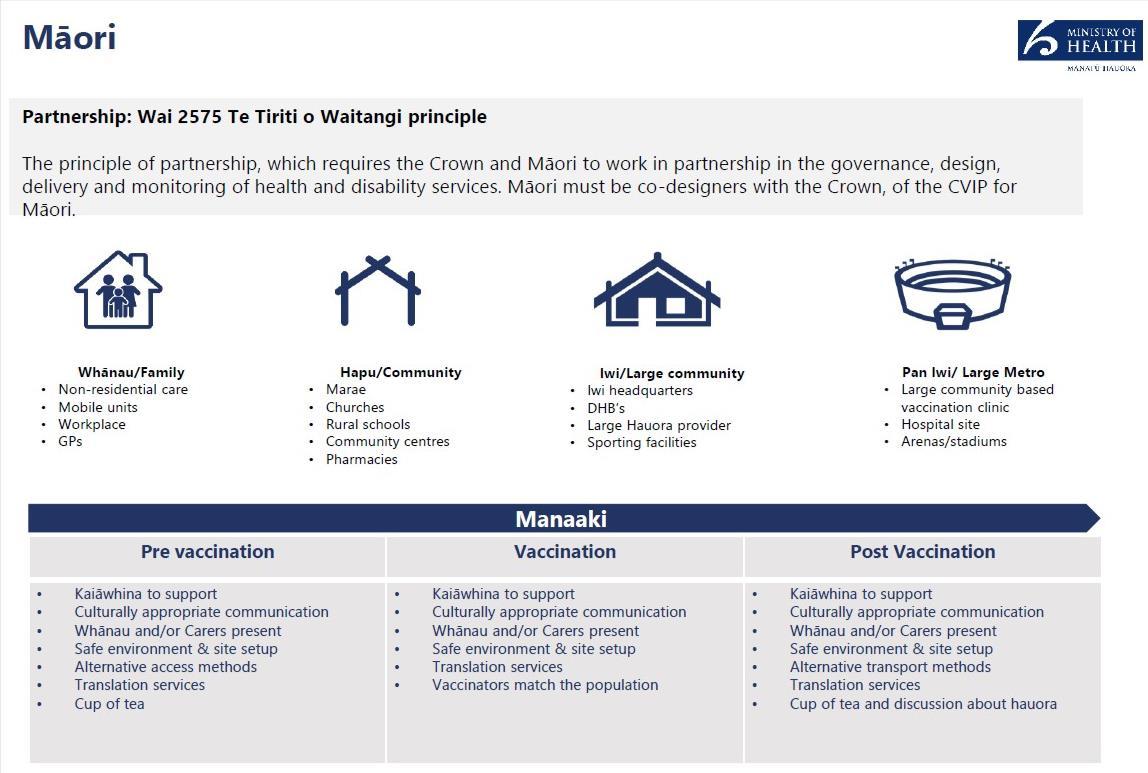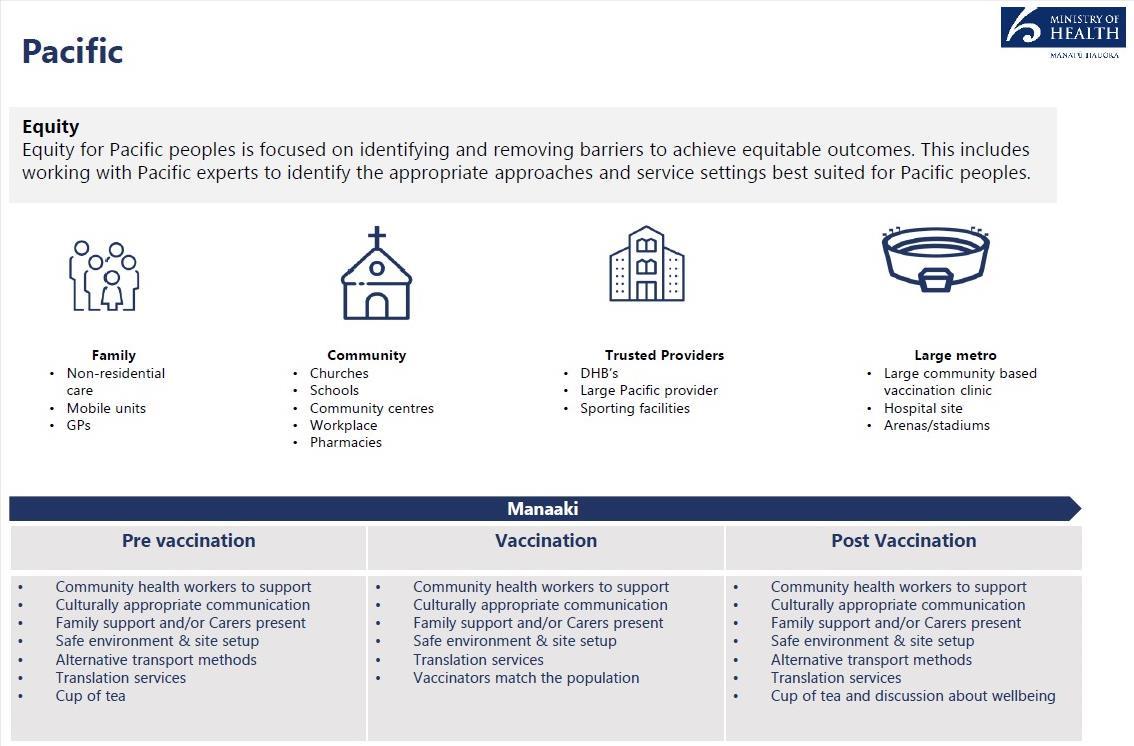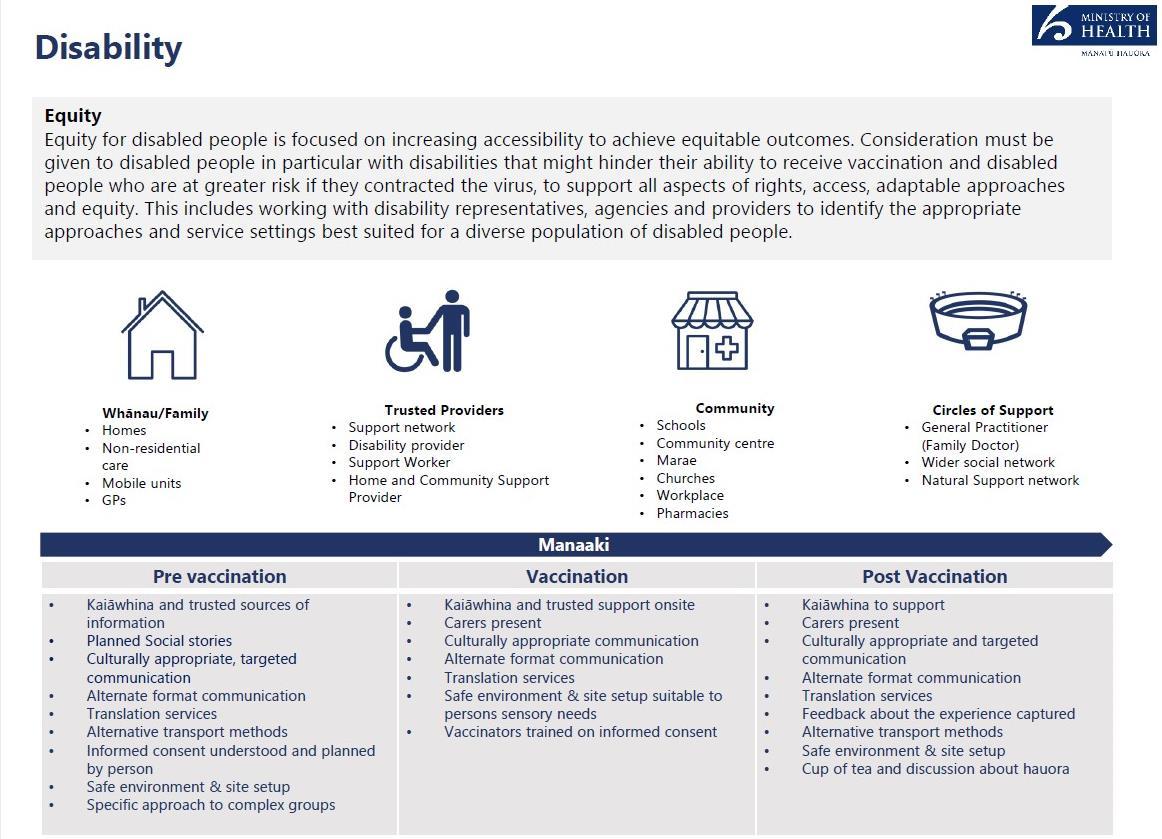
2 minute read
9. Payments
from Planning Blueprint Considerations for community sites in existing accredited vaccination health care
by WBOP PHO
determine what reasonable follow up looks like if customers have only received a single dose and who is accountable for the follow up. This may vary depending on the local commissioning arrangements.
Adverse events
Vaccine related adverse events should be recorded and reported to CARM. These can be reported through • the CIR for adverse events during the observation period • the CARM website for any post-event presentation after the consumer has left the site. Further functionality on CARM reporting and other systems for ease of access is being explored.
From 1 July 2021 an automated pay per dose (PPD) payment solution will be implemented based on the events recorded in the CIR. When an immunisation event is appropriately recorded in the CIR, the combination of Contract, Provider and Site will be used to automatically determine the payment amount due and the contracted party will receive payment for the service automatically. It will be not necessary to generate and send additional invoices for PPD services. Where a contract is not on a PPD basis, or where there are special payment arrangements outside of the national PPD pricing arrangement these will usually be managed on an invoice basis. Full terms and conditions for payment of COVID-19 services will be specified in your individual contract with your local DHB.
Appendix 1: Guidance on delivery models for Māori, Pacific and disability groups
The following examples show how an equitable approach to Māori, Pacific and disabled communities may be incorporated into vaccination site planning and operations. Note that these are examples of equitable practices to support your planning, not a checklist of requirements that you must meet.


In order to deliver an equitable vaccination programme, vaccination services and settings must be inclusive and accessible for disabled people and their communities. This includes consideration of accessibility across the vaccination journey, for example, early information provision on the benefits of vaccination and awareness of service delivery options and associated accessibility features. All vaccination sites (with the exception of mobile sites delivering to specific groups) must meet accessibility standards.1 Core components include ○ Appropriate disability specific accommodations in all sites ○ Alternate formats translations of all public facing communications and engagement ○ Developed supported decision-making process to the Health and Disability Code of Rights (Right 7)
1 NZS 4121:2001 Design for access and mobility: Buildings and associated facilities. Ministry of Health guidance



